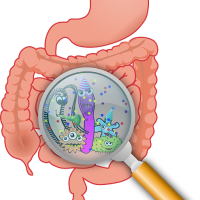Why Gut Health Affects All Health
While research is ongoing, researchers agree that your gut health contributes to many areas of your health and wellness. It is important to realize that the gut performs these main functions: digestion and absorption, elimination and detoxification, microbial balance, and gut barrier function. Together these functions build a strong foundation for optimal health. While studies continue, researchers agree that the gut microbiome impacts whole-body health. Lifestyle and dietary changes can positively affect not just your gut health but your total health.
The main drivers of gut health modification are shifts in stomach acid, gut immunity, and the complex environment of bacteria in your digestion system. Good gut health results in a strong immune system, brain health, heart health, sharp mind, healthy sleep, healthy digestion, and possible prevention of some autoimmune diseases and cancers
Frequently asked questions
Your gut microbiome is the foundation of your health. Excellent gut health occurs when you balance the good (helping) and bad (potentially harmful) bacteria and bugs in your gastrointestinal system.
Your diet and lifestyle can impact your gut microbiome, including eating a diet full of processed and high-sugar foods, high stress levels, insufficient sleep, and taking prescription antibiotics. This in turn, may affect other elements of your health, such as immune function, hormone levels, weight, and chance of illness. Learn how to look after your gut, whether you experience diarrhea, gas, have a specific gastrointestinal health condition, or desire a much healthier microbiome.
Eating a plant-based diet that includes fermented foods and fiber from fresh fruits and vegetables, having healthy sleep routines, and handling stress levels are other methods to support a healthy gut. If you want to embrace a much healthier lifestyle, begin easy with minor diet modifications and build from there.
You can eat foods high in water content. There are many foods that help cleanse the gut through diet naturally. Remove inflammatory foods from your diet, and add probiotics, prebiotics, water, tea, kiwi fruit, green juice, and exercise daily.
Diet and lifestyle choices, including poor sleep quality, alcohol consumption and inactivity, can hurt your gut bacteria. Living a healthy lifestyle that includes routine exercise, physical activity, low stress and a diet of whole foods is the easiest way to ensure a healthy gut.
Frequent bloating, constipation, discomfort, gas, diarrhea, and heartburn could be indications that your gut is having a tough time processing food and removing waste. Individuals with chronic fatigue might have imbalances in the gut.
Studies over the past couple of decades have discovered links between gut health and the immune system, psychological health, autoimmune illness, endocrine conditions, food poisonings, heart disease, and cancer.
Key Terms
- Gut Microbiome
- Gut-brain axis
- Food intolerance
Your 'gut microbiome' is made up of the trillions of microorganisms and their genetic material that live in your intestinal tract. These bacteria, fungi and other microbes play a very important role in your health by helping control digestion and benefiting your immune system and many other aspects of health.
A healthy gut communicates with our brain using hormones through the neural network. The gut-brain axis (GBA) consists of 2-way communication between parts of the brain with peripheral intestinal functions.
Food intolerance, or food sensitivity means your digestive system has a hard time digesting or breaking down a specific food. Food intolerance means your gut is sensitive to certain foods and can't easily tolerate them.
The Latest In Gut Health
- All
- Gut Health
- Constipation

Waking Up Bloated In The Morning
Waking up bloated is a common and unpleasant experience that many individuals Read More

Celiac disease foods to avoid
If you have celiac disease, going gluten free is a must. To Read More

When is the best time to take probiotics?
Probiotics contain live microorganisms that can support and enhance your healthy gut Read More

How to get rid of gas fast
Trapped gas can be acutely painful. It's usually not serious, but may Read More

Natural laxatives that work fast
Some fruits, such as papaya, orange or plums are great natural laxatives Read More

Foods That Contain Natural Digestive Enzymes
Good digestive health is an important safeguard against many ailments. One effective Read More

How to improve gut health naturally
An unhealthy gut may affect your immune system, contribute to disease, and Read More

How To Get Rid Of Bloating Fast?
Bloating is common and can be very uncomfortable. A bloated stomach usually Read More

What foods cause gas & bloating?
Some foods cause gas and bloating more than others. Excessive gas and Read More
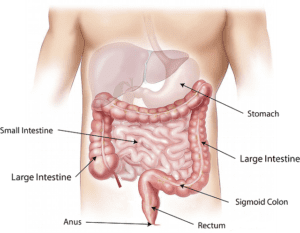
What Are Digestive Enzymes?
What are digestive enzymes? If you’re experiencing indigestion issues, you might have Read More

Ayurveda For Gas & Bloating
According to Ayurveda, good digestion is the main indicator of good health Read More

What is bloating?
Bloating occurs in your abdomen. It happens when your GI tract fills Read More

Why does your stomach growl?
Stomach growling is normal and often happens after eating a meal. However, Read More
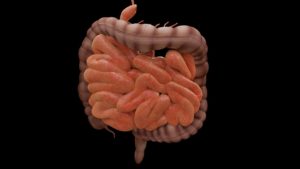
SIBO diet foods to eat & avoid
Small intestinal bacterial overgrowth, or SIBO, occurs when bacteria that usually grows Read More

Good Gut Health Foods Diet
Gut-healthy foods can make an impact on your health in general. Find Read More

Homeopathic remedies for acid reflux & heartburn
Homeopathic medicine Natrum Phosphoricum can be an effective solution to treat the Read More

Homeopathy as Holistic Care for gastroenteritis disorders
Homeopath explains how Gastroenteritis can be effectively treated with the help of Read More

Yoga For GERD
Yoga can heal GERD by lowering the stress levels and improving the Read More

Yoga Treatment For Pancreatitis Patients
Research shows Yoga can help reduce pain & need for pain medications, Read More

Yoga Poses For Constipation, Gas & Bloating Relief
Yoga benefits constipation, gas & bloating by lowering your stress & giving Read More
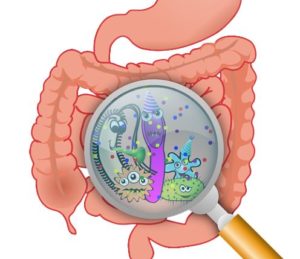
Yoga For Digestion & Gut Health
Yoga has numerous health benefits including digestion. Yoga asanas help with constipation, Read More

Yoga For Ulcerative Colitis
Research shows that yoga can help improve the quality of life for Read More

Why am I so bloated & gassy
Finding the root cause is key in fixing bloating & gas. Eating Read More

How To Stop Farting
Can’t stop farting? How to stop farting? Certain foods, carbonated drinks & Read More

Why Does My Body Feel Heavy?
Stress, anxiety, poor sleep, food intolerances & medical conditions can cause fatigue. Read More
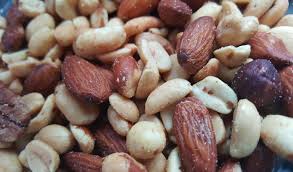
Why Magnesium is important for your diet
Learn why Magnesium is important for your diet from a dietitian. Magnesium Read More

What does heartburn feel like
Acid reflux is a frequent cause of heartburn, a burning sensation behind Read More

What Is Acidity? Causes, Symptoms, And Natural Treatments
Acidity is characterized by a deep burning sensation after swallowing a heavy Read More

Type 2 Diabetic Meal Plan Ideas
Diabetic meal plans need regular balanced meals to avoid high or low Read More

The Ketogenic Diet for Cancer Starving
Ketogenic diet for cancer limits the glucose in the body & increases Read More

The Role of Symptoms in Healing
The majority of the North American population supports an allopathic medical system Read More

Stop And Reverse Diabetes Type 2 With Diet Therapy
Find best diet therapy treatments to heal or reverse diabetes Type 2 Read More

Silent Reflux LPR Causes Natural Treatments
Silent reflux symptoms in adults include hoarseness, frequent throat clearing, persistent coughing Read More

Sample Diet Plan for a day for Kidney Disease – Stage 1
Sample diet plan has been designed for kidney disease prevention. Suggested maximum Read More
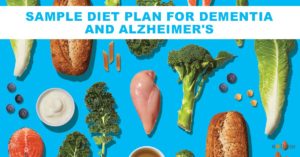
Sample Diet Plan for Dementia and Alzheimer’s
Is there a link between dementia and nutrition? See suggested meal plan Read More

Sample Meal Plan for GERD- Gastrointestinal reflux disease
Control your GERD with proper diet by eating smaller meals. See how Read More

Pros And Cons Of Keto Diet
The Keto diet has many pros and cons. Pros include weight loss, Read More

Pre-diabetes Diet Plan for Vegetarians
Pre diabetic Indian diet plan must consist of 55-60% complex carbohydrates,15% protein Read More

Prediabetic Diet Plan Best Ideas
A prediabetic diet plan is a healthy diet plan that will help Read More

Probiotics in Yogurt can improve brain function by altering the intestinal microflora
Yogurt contains probiotics, which are friendly bacteria that can improve your gut Read More

